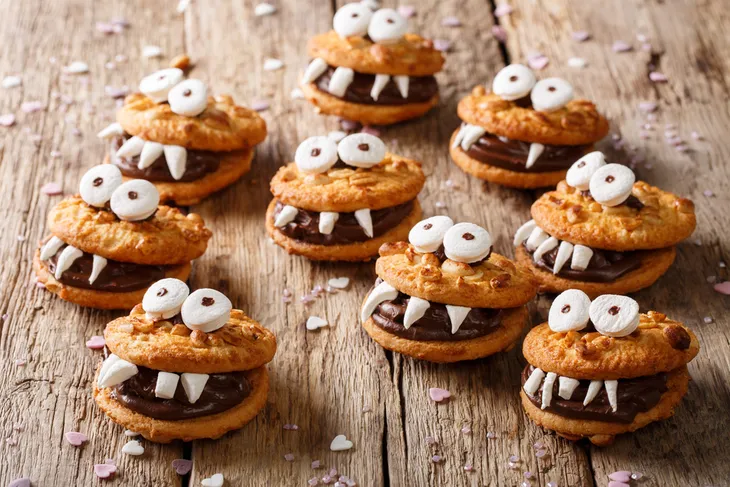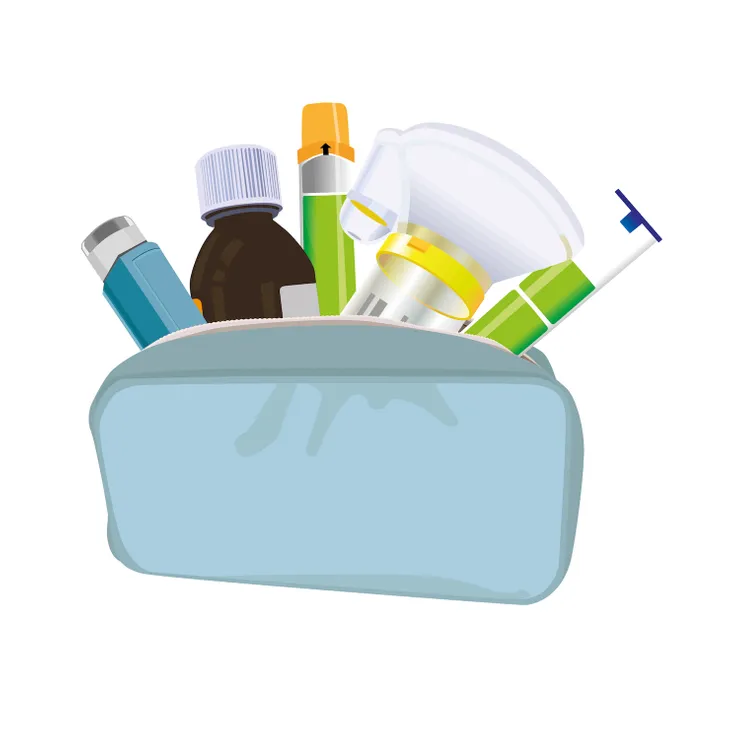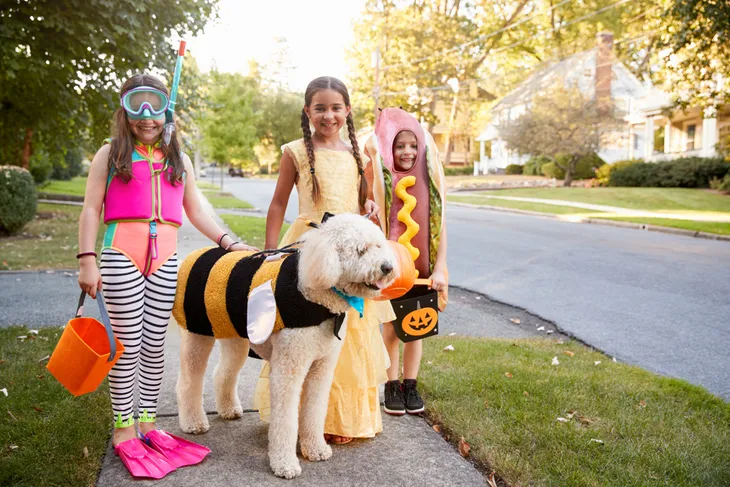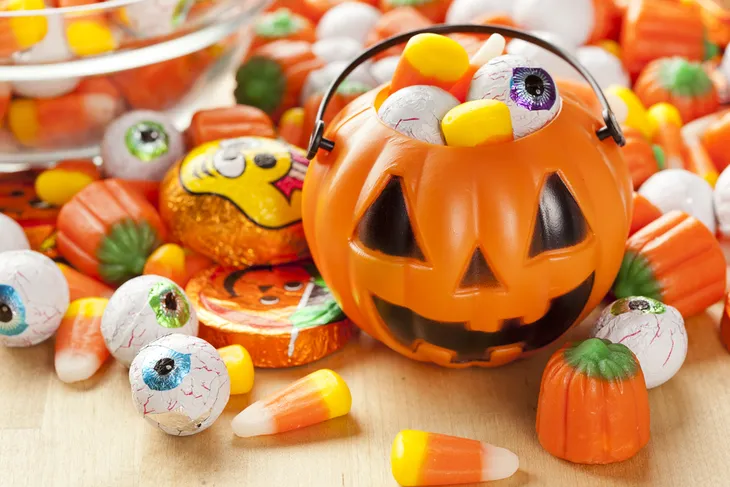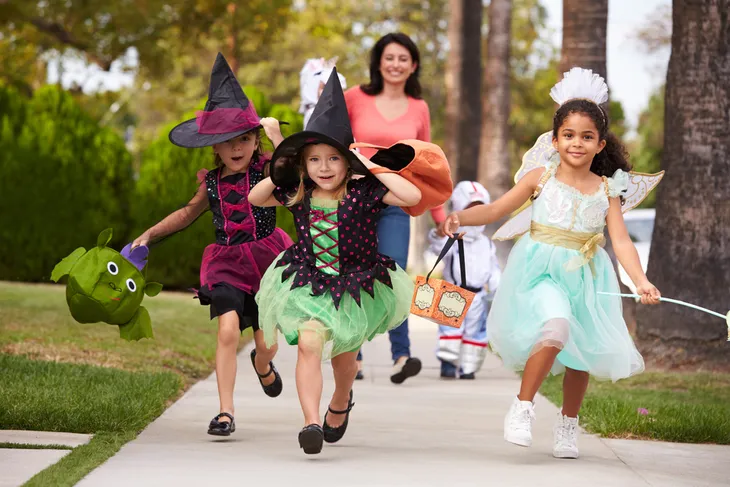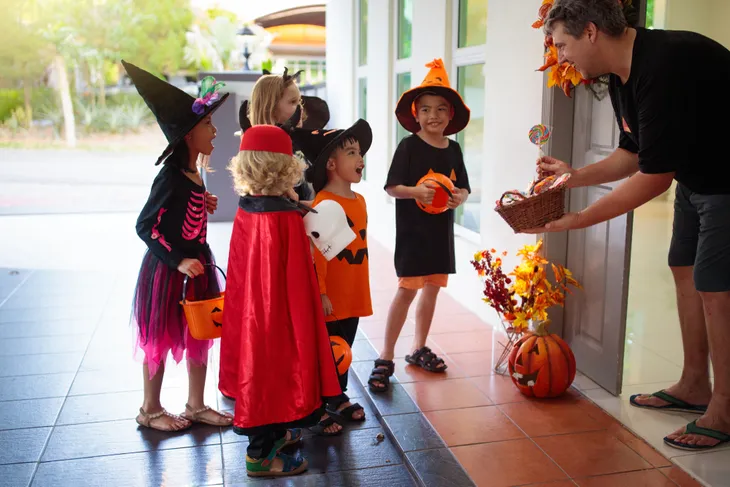Costumes and candy are what the spirit of Halloween is all about, but for kids with food allergies, this holiday can pose some frightfully real dangers.
Here are ten helpful safety tips to keep children with allergies safe this Halloween holiday…
Eat Dinner Prior to Trick or Treating
One way to prevent kids from goring themselves on Halloween candy without reading the ingredients first is to feed them dinner before they start their night of trick-or-treating. This way, they’ll be less tempted to stick their hands in the candy bag and partake before they get home to check their loot with mom and dad.
No Homemade Treats
Teach your children to say no to homemade treats. They might be made with love by your neighbors and family, but may contain dangerous ingredients that can bring on a dangerous allergic reaction if eaten or even touched by your child.
Tote Your Child’s Medications
Mask—check, skeleton gloves—check, trick or treat bag—check, wig—check, but what about your child’s medication? Ensure a safe and fun evening of trick or treating by being proactive. Tote your child’s emergency medications, any injectable epinephrine (i.e., EpiPen), asthma inhalers, and medical alert information along with all of the other essentials.
Get Scary Creative with Your Child’s Costume
The homemade costumes are the best anyway, and you can include some neat extras for a child with allergies. For instance, if hand to food contact can spur an allergic reaction, make a costume with a pair of scary gloves. That way, if your little goblin makes contact with dangerous foods (i.e., peanuts), he or she will have an extra layer of protection.
Check Store Bought Costumes for Dangers
Be aware that any store bought costumes can contain latex and other synthetic dyes that may cause irritation and a dangerous allergic reaction. So check the labels and even the manufacturer’s website for a full list of products used in the manufacturing of your child’s costume before they put it on.
Check Candy Ingredients
Ditto goes for all candy ingredients. The package might give you an overview of what’s in that candy bar or mini box of sweets, but the company’s website will provide a full list of ingredients with nutrition and allergenic information to avoid any dangerous reactions.
Beware of Decorations
Halloween decorations also pose a threat for children with allergies from things like latex, chemical dyes, and coatings that can irritate and trigger asthma or allergic skin reactions.
Use Hypoallergenic Costume Accessories
Using hypoallergenic costume essentials—like gloves, and make up—for your child’s costume is a must if your son or daughter suffers from eczema or another allergic skin reaction. You can find hypoallergenic make-up quite easily, or better yet, steer clear of make-up entirely.
Inform Your Child’s Friends of Their Allergy
If your child is old enough to go trick or treating without mom and dad, chances are they will opt to go with friends. If this is the case, you can ensure a safe and fun evening by making sure their best friend is aware of their allergy, giving them an emergency contact number, and showing them how to administer allergy medication or a injectable allergy device… just in case a crisis occurs.
Introduce a New Halloween Tradition
If the lack of control over trick or treating has you worried, host a Halloween party or a candy swap with the neighborhood kids and parents of other kids with food allergies. This way all the kids can enjoy a fun, safe evening of dressing up and candy in an allergy-free environment.


